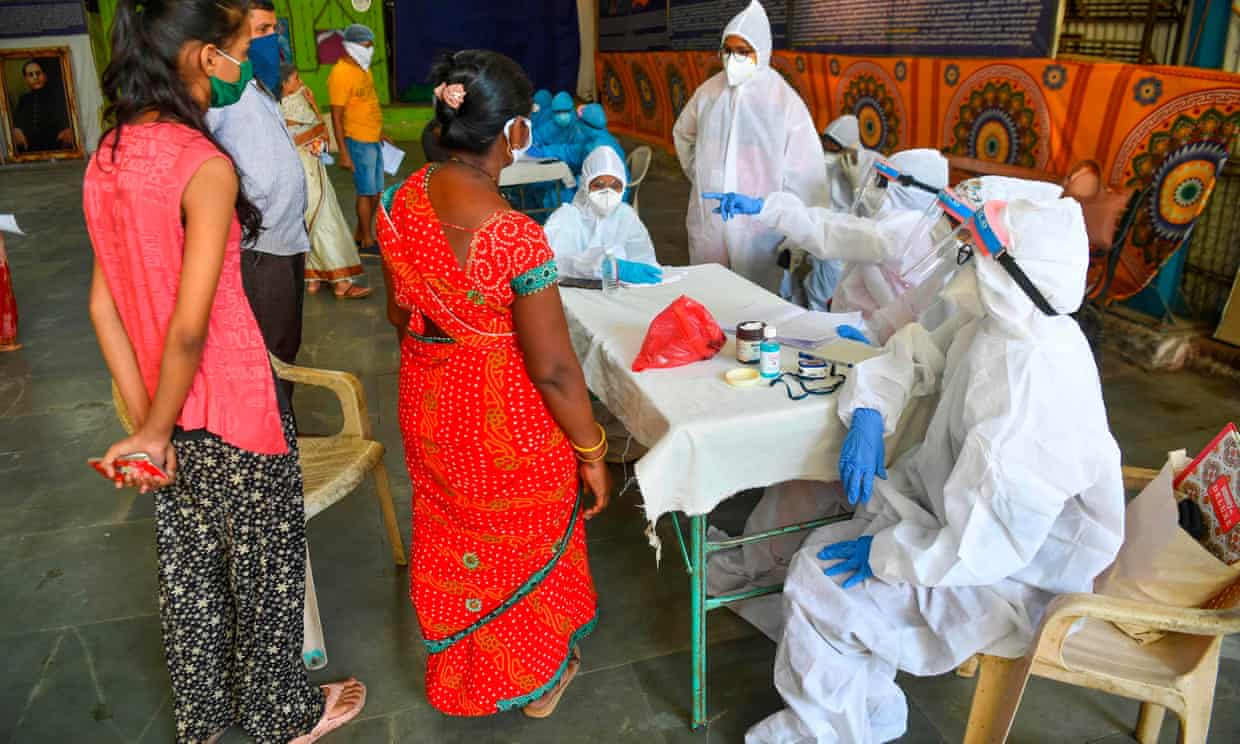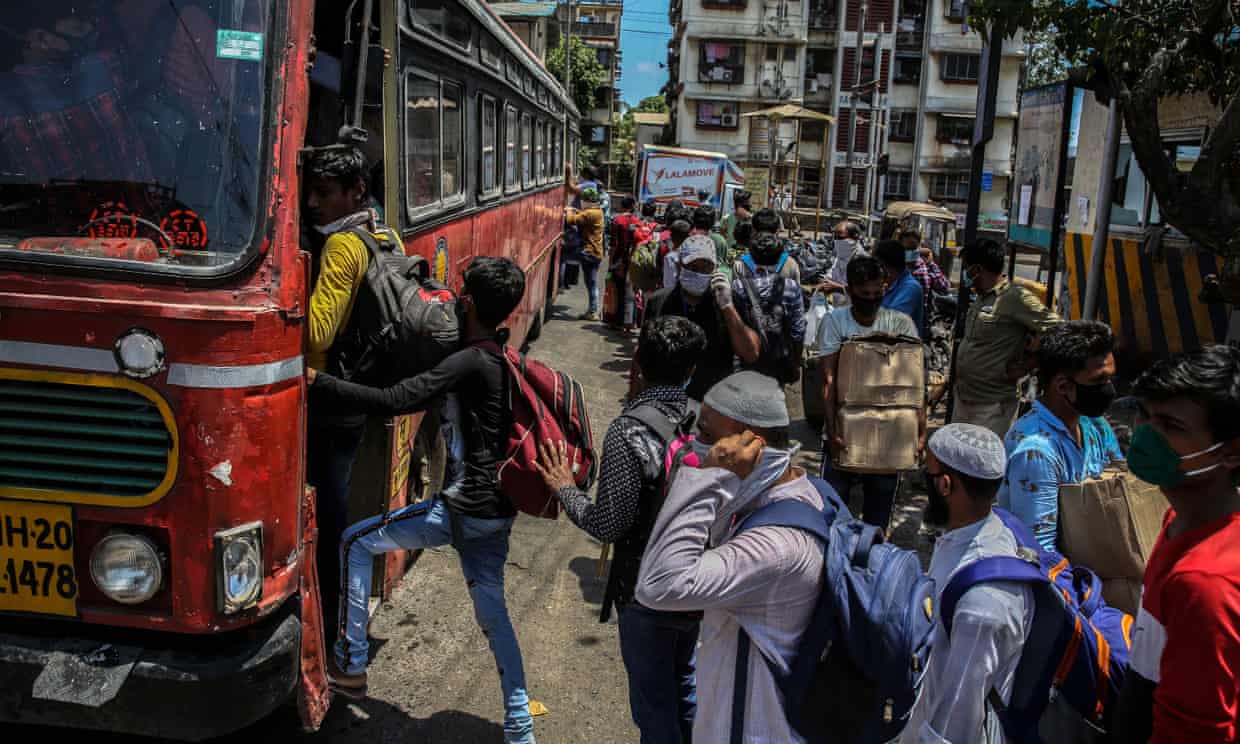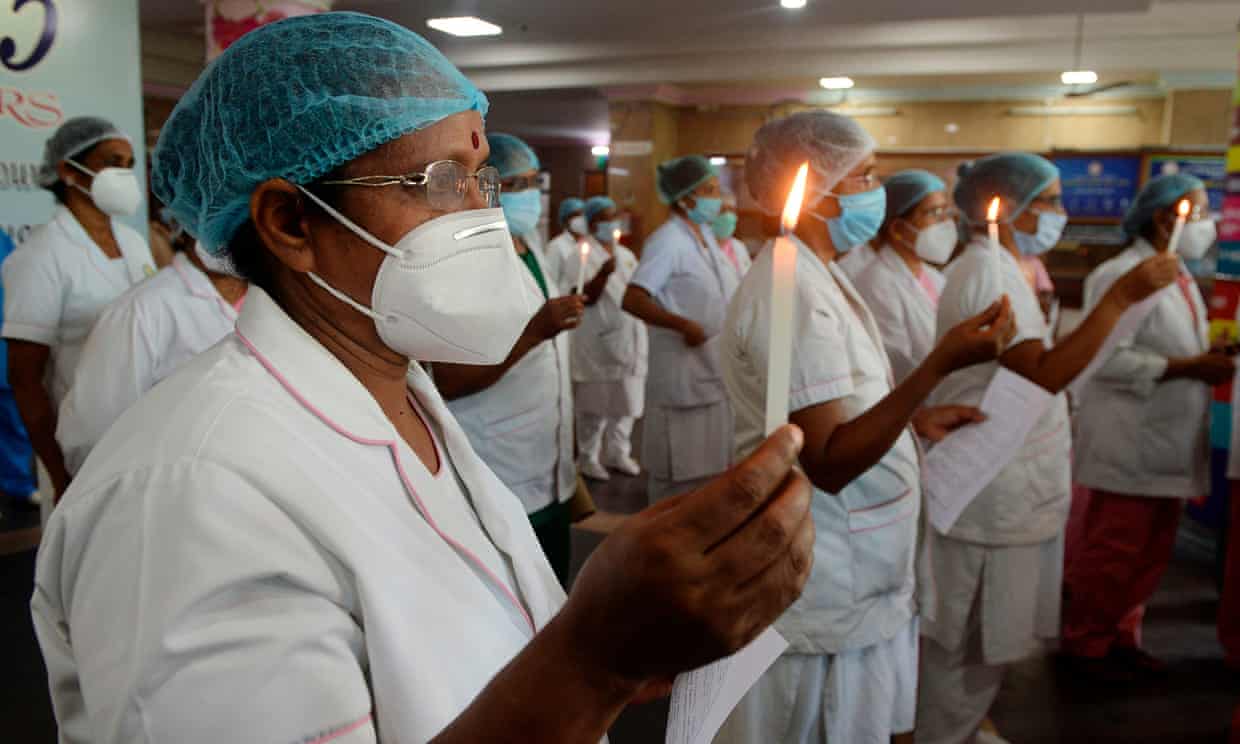
India
Patients share beds as coronavirus cases overwhelm Mumbai’s hospitals
As India’s pandemic continues, in some areas the healthcare system is close to collapse
by Hannah Ellis-PetersenIn Mumbai’s Sion hospital emergency ward there are two people to a bed. Patients, many with coronavirus symptoms and strapped two to a single oxygen tank, were captured lying almost on top of each other, top-to-toe on shared stretchers or just lying on the floor, in footage shared on social media in India this week.
Mumbai, a city of more than 20 million people, is weeks into the pandemic, but with new cases showing no sign of slowing down the city’s already weak healthcare system appears to be on the brink of collapse. State hospitals such as Sion, overcrowded in normal times, are overrun. With frontline doctors and nurses falling sick with the virus in their droves, it is also leading to a shortage of medical staff.
“The volume and density of our population in Mumbai makes it very difficult to see how we will get out of the other side of this peak,” said Manish Shetty, a doctor who works on the Covid-19 ward in Guru Nanak hospital in Mumbai. “Definitely there is a fatigue setting in from all frontline workers, especially because there is a very high chance of healthcare workers getting infected.”
He added: “There is definitely a shortage of beds for critical care. There is a lot of infrastructure and planning which is happening, but the magnitude of the cases is overwhelming us all.”

It was at Sion hospital that, in footage that went viral a few weeks ago, Covid-19 patients were seen being treated in a ward alongside dead bodies, wrapped in black plastic bags, after the hospital morgue ran out of room.
With 59,546 cases, and 1,695 deaths – nearly a quarter of all Covid-19 deaths nationally – the state of Maharashtra, and in particular its biggest city, Mumbai, has emerged as the centre of India’s coronavirus outbreak. According to doctors and officials, the peak began on 6 May, but the curve is showing no signs of flattening, and cases are still doubling every week.
With state-run hospitals quickly running out of beds and keeping symptomatic patients waiting, the Mumbai municipal corporation has raced to convert a series of stadiums and office complexes into coronavirus wards and quarantine centres.
A makeshift hospital with 1,000 beds, including intensive care facilities, was built in the city’s business district, the Bandra Kurla Complex. The National Sports Club of India stadium is being converted into a 600-bed quarantine and ICU facility, while the Mumbai planetarium will house 300 beds and the Nehru science centre will be made into a quarantine facility for those living in slums. Private hospitals have also been ordered to give over dozens of their beds for Covid-19 patients.
A Mumbai municipal corporation spokesperson, Vijay Khabale, denied that coronavirus patients were being denied beds. “There are enough beds but there is a lack of coordination with other agencies, which is why there are these reports. The present situation is that we have more than enough beds and quarantine facilities.”
Khabale said that all the new facilities would be completed within the week, but he was optimistic they would not need to be used at full capacity. “We are expecting that within a day or two that the cases will begin to flatten and then begin to decrease,” he insisted, adding: “We have it under control.”

However, many doctors fear that the worse is still to come. India has been under one of the world’s strictest lockdowns since 24 March, but it has only slowed down the spread of the virus, rather than flattening the curve of cases. India ranks 4th in the world for new cases recorded each day, and with lockdown due to be loosened at the end of this week there are fears it will prompt a spike in infection rates, for which the hospitals are not prepared. India has had 158,000 reported cases.
To complicate matters further, the beginning of June will bring the monsoon and the outbreaks of dengue fever, malaria and leptospirosis, which already inundate hospitals on an annual basis. Last year India officially reported more than 67,000 cases of dengue, though the real figure is thought to be much higher.
According to the human rights activist Abraham Mathai, who runs the All India Nurses Association, dozens of patients with non-Covid related diseases are dying because they are being denied access to treatment, with some Mumbai hospitals ordered to only take in Covid-19 patients. Last week, 15-year-old Pawan Maddibona died after six hospitals refused to give him dialysis treatment for his kidneys.
“Non-Covid patients have a right to live, they have a right to get their treatments,” said Mathai. “There has to be some kind of balanced policies so non-Covid patients don’t suffer.”
Shetty from Guru Nanak hospital said his main fear was the as-yet unknown combination of coronavirus with the monsoon diseases, something other countries further through the pandemic had not been forced to face. “It will be a whole worrying new realm,” he said. “My guess is we will need a lot of beds to cope.”